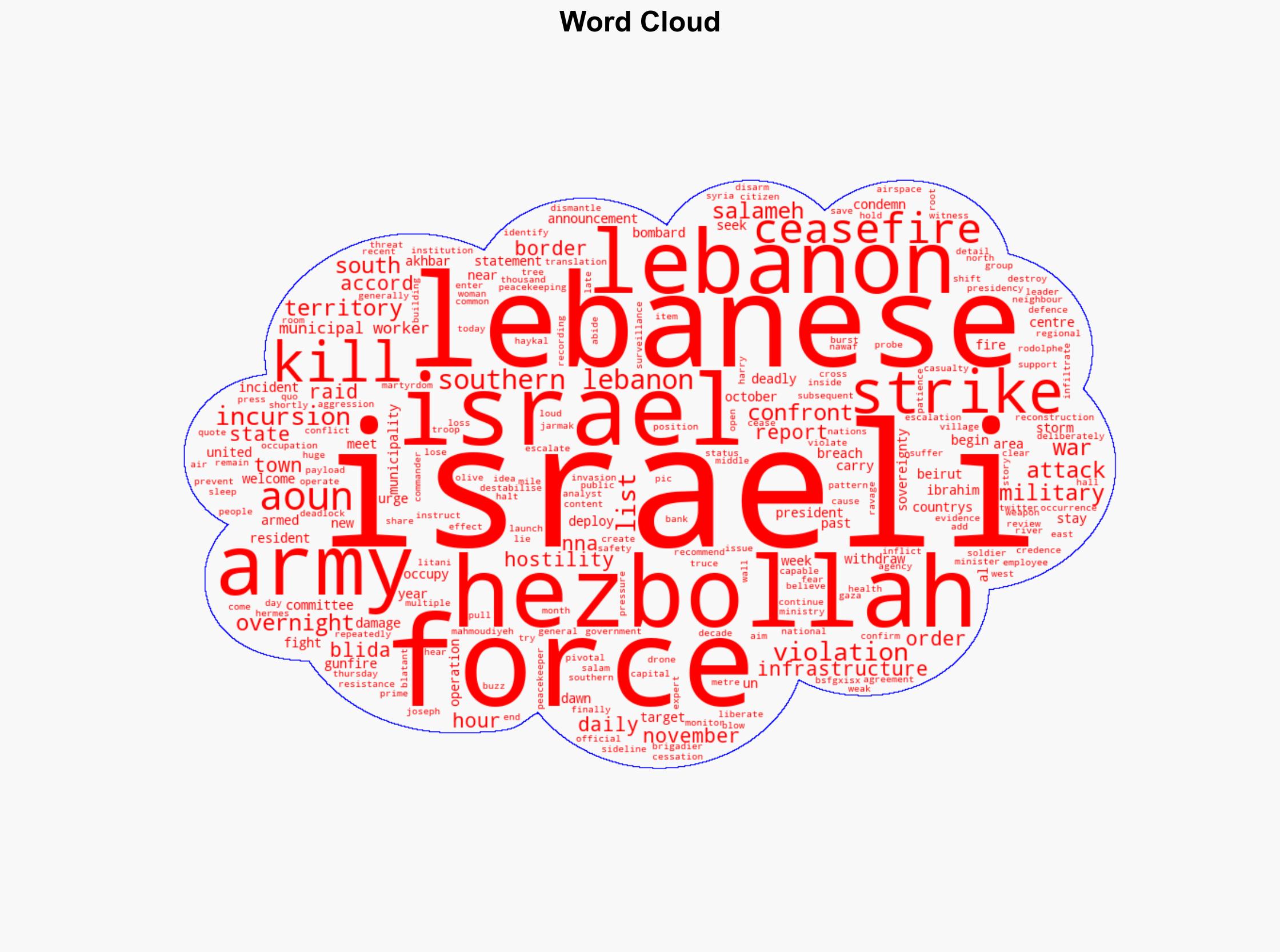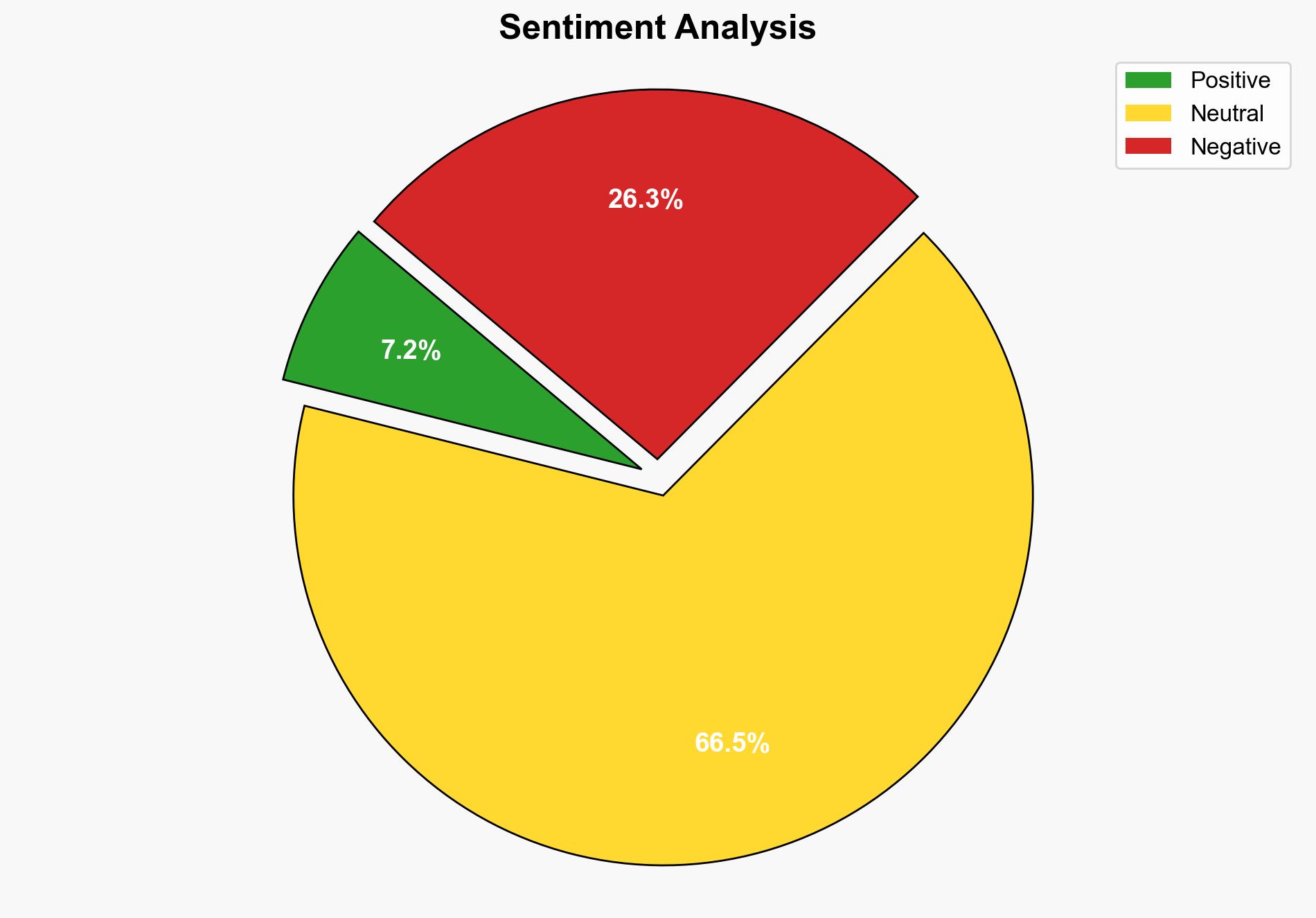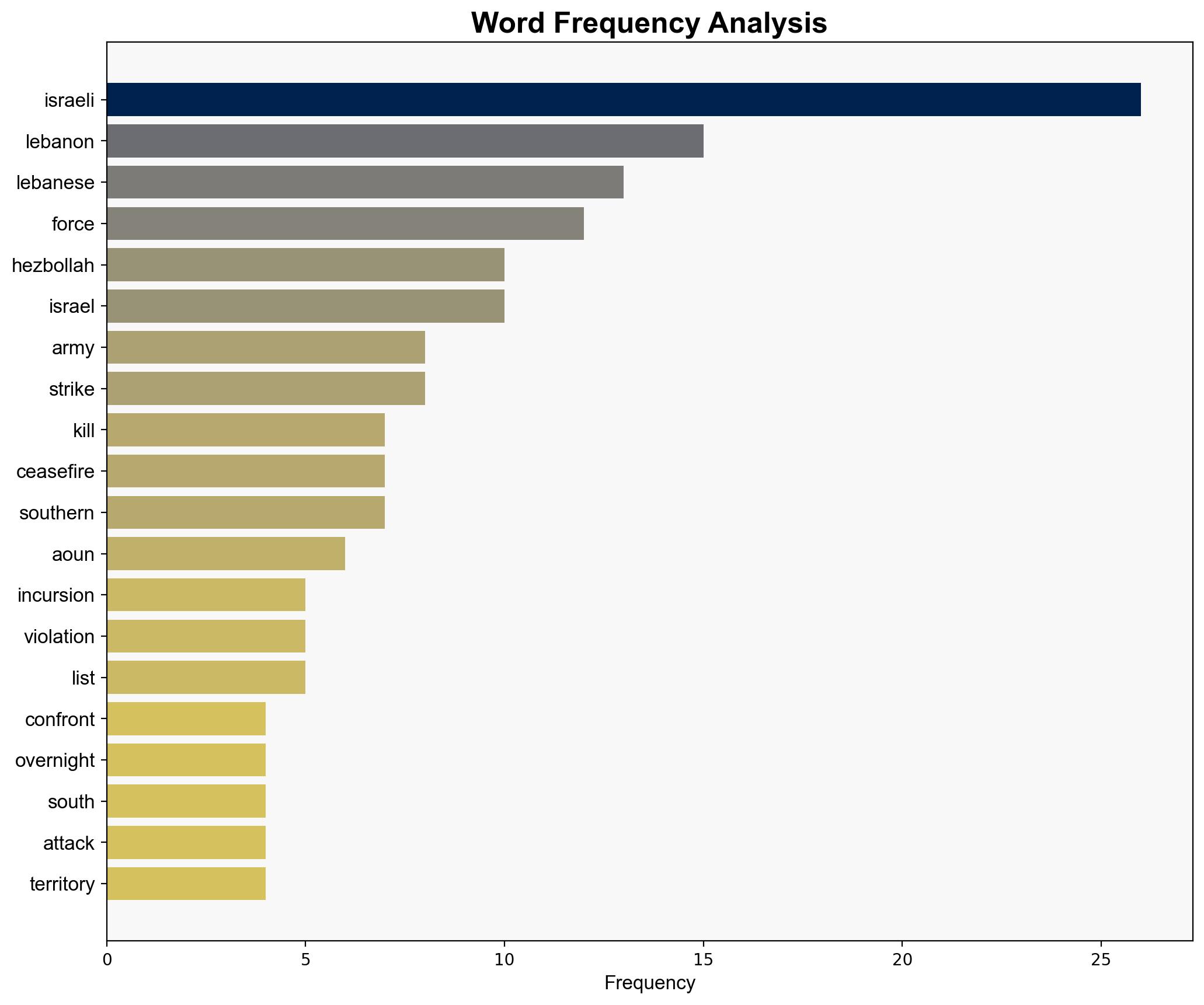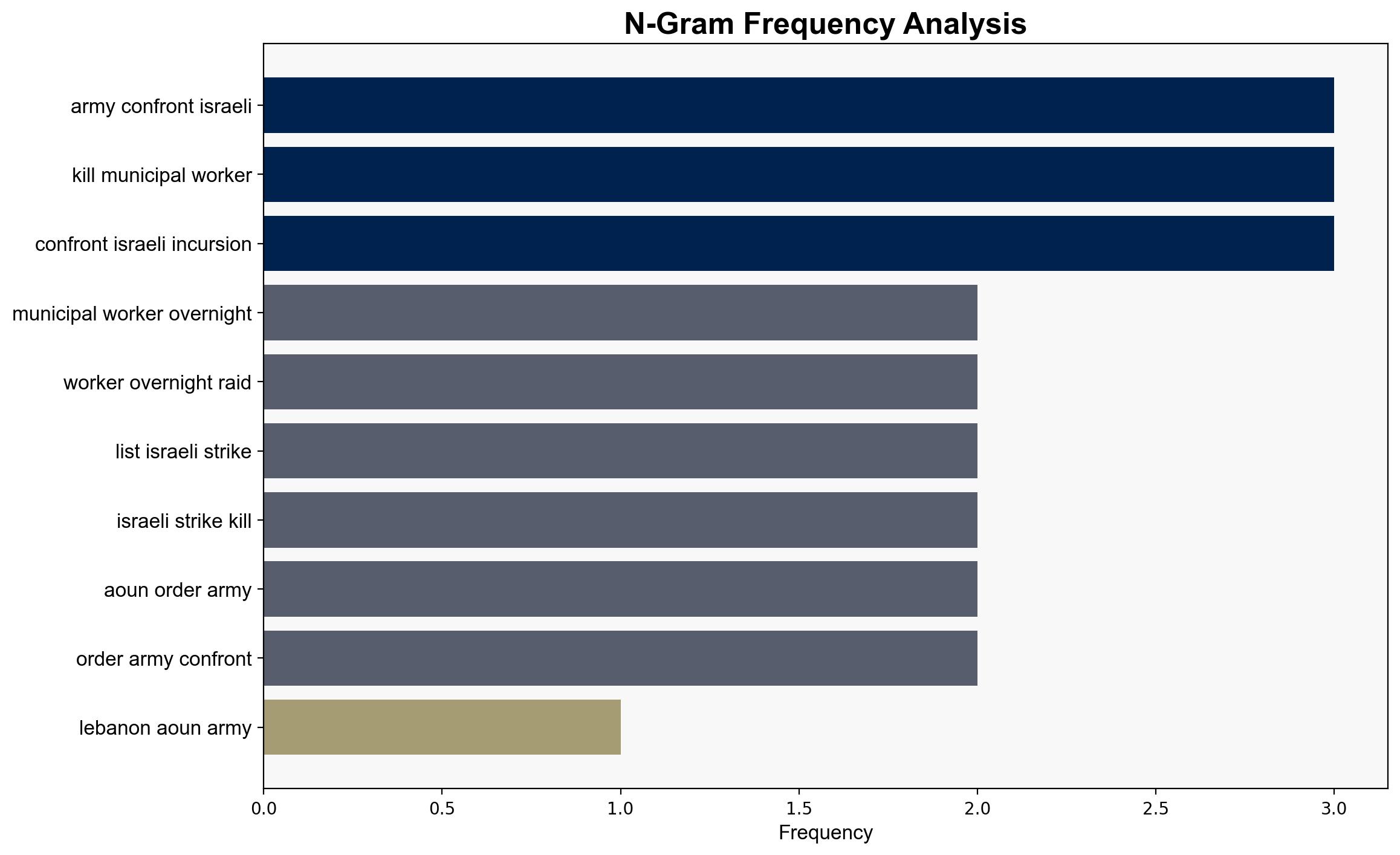Lebanons Aoun says army to confront Israeli forces after deadly incursion – Al Jazeera English
Published on: 2025-10-30
Intelligence Report: Lebanons Aoun says army to confront Israeli forces after deadly incursion – Al Jazeera English
1. BLUF (Bottom Line Up Front)
The Lebanese President’s directive for the army to confront Israeli forces marks a significant escalation in regional tensions. The most supported hypothesis suggests a calculated response to repeated Israeli incursions, aiming to deter further violations. Confidence level: Moderate. Recommended action: Diplomatic engagement to de-escalate tensions and reinforce ceasefire agreements.
2. Competing Hypotheses
1. **Hypothesis A**: The Lebanese President’s order is a strategic move to assert sovereignty and deter future Israeli incursions. This response is primarily defensive, aiming to protect Lebanese territory and citizens.
2. **Hypothesis B**: The directive is a political maneuver to consolidate internal support and strengthen ties with Hezbollah, leveraging the situation to gain domestic and regional influence.
Using the Analysis of Competing Hypotheses (ACH) 2.0, Hypothesis A is better supported due to the immediate context of repeated Israeli violations and the emphasis on national defense in official statements.
3. Key Assumptions and Red Flags
– **Assumptions**: It is assumed that the Lebanese army has the capacity to effectively confront Israeli forces without escalating into broader conflict.
– **Red Flags**: The potential for miscommunication or miscalculation leading to unintended escalation. The lack of independent verification of the incident details raises concerns about bias or misinformation.
– **Blind Spots**: Limited insight into internal Israeli decision-making processes and potential responses to Lebanese military actions.
4. Implications and Strategic Risks
– **Escalation Risk**: Increased military engagement could lead to broader conflict, drawing in regional actors and destabilizing the area.
– **Economic Impact**: Prolonged tensions may deter investment and exacerbate Lebanon’s economic challenges.
– **Geopolitical Dynamics**: The situation could influence alliances and power balances in the Middle East, particularly involving Iran and Syria.
– **Psychological Impact**: Heightened fear and uncertainty among civilians, potentially leading to displacement and humanitarian concerns.
5. Recommendations and Outlook
- Engage in diplomatic dialogue with international mediators to reinforce ceasefire agreements and prevent further escalation.
- Enhance intelligence-sharing mechanisms with regional partners to improve situational awareness and reduce the risk of miscalculation.
- Scenario Projections:
- Best Case: Successful diplomatic intervention leads to a reinforced ceasefire and reduced tensions.
- Worst Case: Escalation into a broader military conflict involving regional actors.
- Most Likely: Continued low-level skirmishes with periodic diplomatic efforts to manage tensions.
6. Key Individuals and Entities
– Joseph Aoun
– Ibrahim Salameh
– Nawaf Salam
– Hezbollah
7. Thematic Tags
national security threats, regional focus, military escalation, diplomatic strategy





